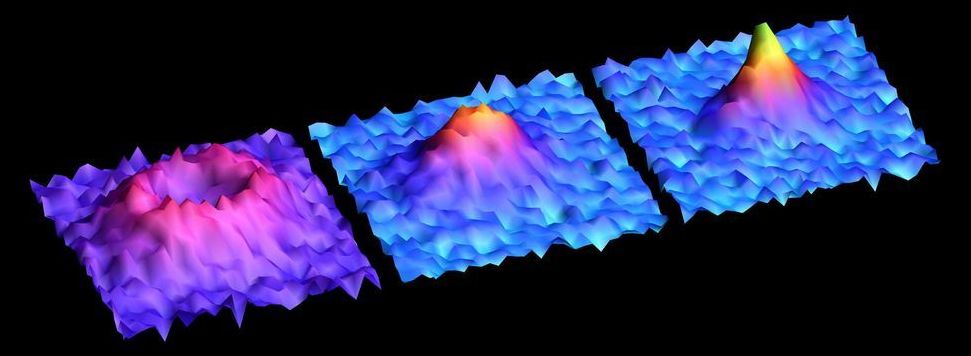A team of researchers from the University of California and Fudan University has developed a way to use a single molecule magnet as a scanning magnetometer. In their paper published in the journal Science, the group outlines their research which involved demonstrating their sensor scanning the spin and magnetic properties of a molecule embedded in another material.
As scientists continue their quest to squeeze ever more data onto increasingly smaller storage devices, they are exploring the possibility of using the magnetic state of a single molecule or even an atom—likely the smallest possible memory element type. In this new effort, the researchers have demonstrated that it is possible to use a single molecule affixed to a sensor to read the properties of a single molecule in another material.
To create their sensor and storage medium, the researchers first absorbed magnetic molecules of Ni(cyclopentadienyl)2 onto a plate coated with silver. Then, they pulled a nickelocene molecule from the silver surface and applied it to the tip of a scanning tunneling microscope sensor. Next, they heated an adsorbate-covered surface to 600 millikelvin and then moved the sensor tipped with the single molecule close to the surface and read the signals received by the probe as the two molecules interacted.










Comments are closed.